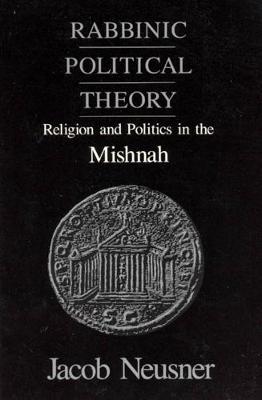In The Economics of the Mishnah Jacob Neusner showed how economics functioned as an active and generative ingredient in the system of the Mishnah. With this new study, Rabbinic Political Theory, he moves from the economics to the politics of the Mishnah, placing that politics in the broader context of ancient political theory.
Neusner begins his study with a modification of Weber's categories for a theory of politics: myth, institutions, administration, passion, responsibility, and proportion. Detailing the Mishnah's conception of politics, Neusner considers what he calls the stable and static structure and system through comparison with Aristotle. Although Aristotle's Politics and the Mishnah share a common economic theory based on the fundamental unit of the householder, they diverge in their conceptions of political structure and order. Aristotle embeds economics within political economy, while, Neusner argues, the Mishnah presents the anomaly of an economics separated from politics.
Using modern political terms, this study explicates the complicated politics developed by the philosopher-theologians of the Mishnah. It is a first-rate contribution to our understanding of the intersection of politics, political philosophy, and the Mishnaic system.
- ISBN10 0226576515
- ISBN13 9780226576510
- Publish Date 18 June 1991
- Publish Status Active
- Publish Country US
- Imprint University of Chicago Press
- Edition 2nd ed.
- Format Paperback
- Pages 284
- Language English
- URL http://wiley.com/remtitle.cgi?isbn=9780226576510
